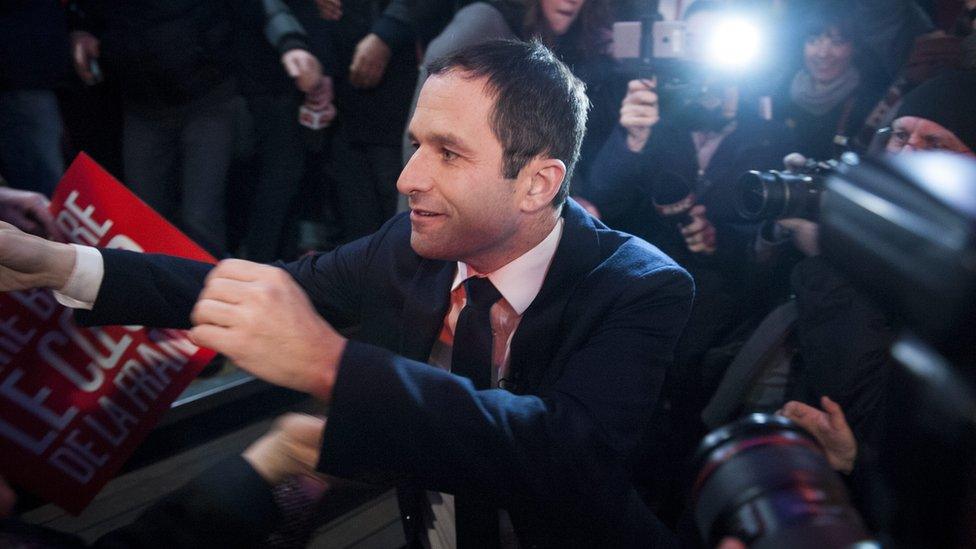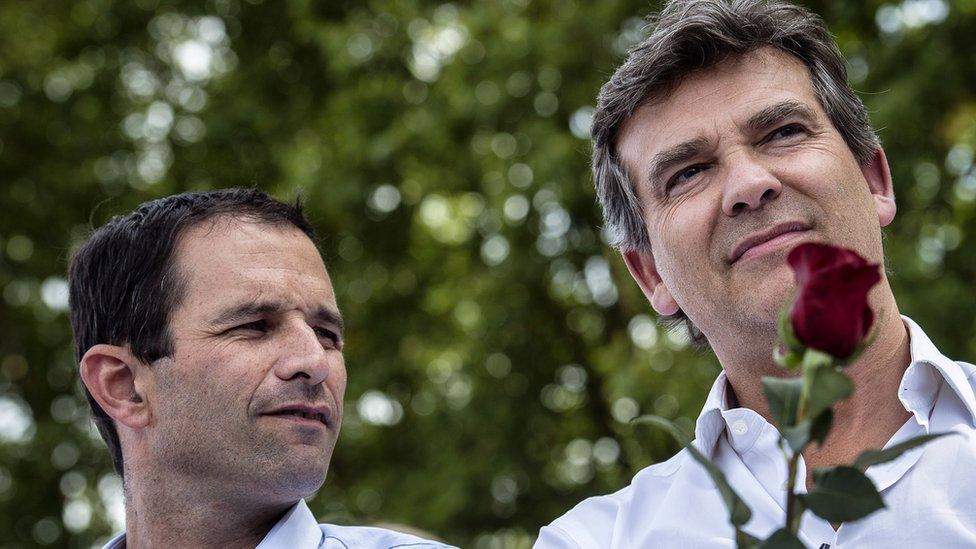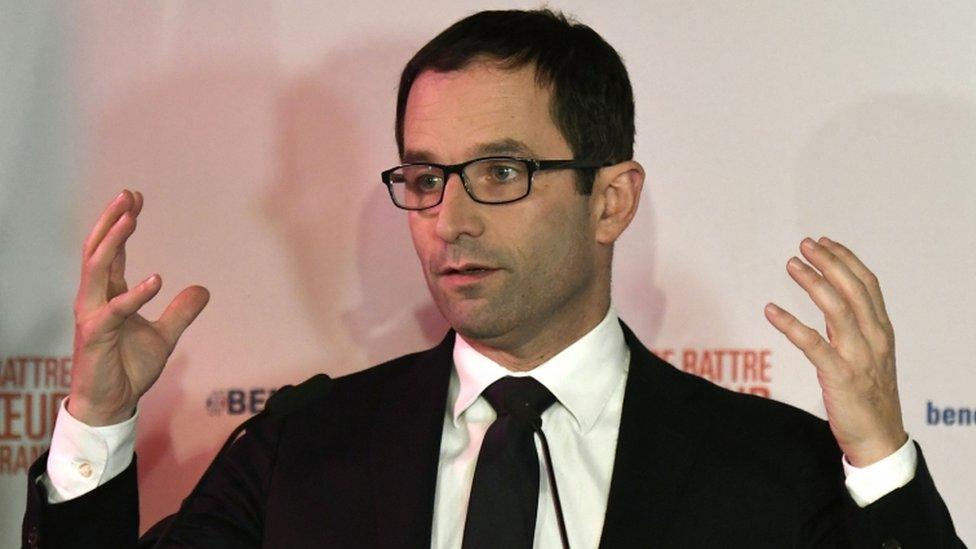France's Benoit Hamon rouses Socialists with basic income plan
- Published

Benoit Hamon has been short on detail with his plan for basic income in France
He's been called the "French Bernie Sanders". After his decisive win in the first round of France's Socialist party primary, left-wing rebel, Benoit Hamon is suddenly the centre of attention.
But what do his rapid rise and eye-catching policies say about the future of the French left?
With his designer stubble and cheeky grin, the 49-year-old Socialist party rebel has been grabbing more than his share of the limelight over the past few weeks.
The most left-leaning of the seven initial candidates in the Socialist race, his programme has been built around the radical proposal of a universal monthly payment for all French citizens, regardless of income. He also wants to legalise cannabis, to tax the wealth created by robots and to ditch the labour law passed last year that made it easier to hire and fire.
The income plan he has outlined would be put into effect in three stages.
First, the current minimum welfare payment for France's poorest would be increased by 10% to €600 (£515; $640) a month
The payments would then be extended to all those from 18-25 years old
Finally the programme would be rolled out to all French citizens sometime after 2022, with the monthly payment increased to €750 a month

Benoit Hamon promises to "make France's heart beat"
Critics have pilloried the plan as unworkable, estimating its cost at between €300-€400bn.
It's true that Mr Hamon has been short on detail when it comes to how his vision for France would be funded. But that doesn't seem to have affected his popularity among left-wing voters.
By finishing several points ahead of former Prime Minister Manuel Valls during the first round of voting on Sunday, Mr Hamon has drawn attention to some important questions for France's ruling left-wing party: most obviously, the deep split between the Socialist party's left-wing supporters and the more liberal, centrist line taken by the current Socialist government.
Manuel Valls was the prime minister who pushed through some of that government's most unpopular labour reforms and security measures. That left a rift with the party that may force him out of the presidential race in the run-off on Sunday.
Benoit Hamon is going into round two in a strong position, having secured the support of fellow left-winger Arnaud Montebourg, who came third in the first round.

Benoit Hamon (L) resigned as a minister with Arnaud Montebourg in 2014 after they called for an end to austerity
If Mr Hamon wins, it will reorient the Socialist party away from the centre of French politics, and back to its traditional left-wing positions.
That may not help him much during the presidential race. Whoever wins the Socialist nomination is tipped to come fifth, according to the opinion polls.
But it could have two important consequences for France.
A nomination for Mr Hamon is likely to funnel centrist votes towards liberal former banker Emmanuel Macron, whose growing popularity is starting to worry the far-right National Front (FN), which is now banking on a place in the second round of the presidential poll.

France's leading presidential candidates

Francois Fillon, Marine Le Pen and Emmanuel Macron are leading the field in the presidential race

And, even as the populist campaigns gather speed in France, the appearance of Benoit Hamon at the head of the Socialist campaign could also signal a return to the politics of a previous era.
For years France's established parties have drifted to the centre ground and voter apathy has grown.
But now voters already have the prospect of an old-school Catholic conservative heading the main right-wing Republican party. And if Benoit Hamon wins the Socialist nomination on Sunday, the main left-wing party will once again embrace its traditional positions on workers' rights, redistribution, civil liberties and the environment.
- Published22 January 2017

- Published21 January 2017
